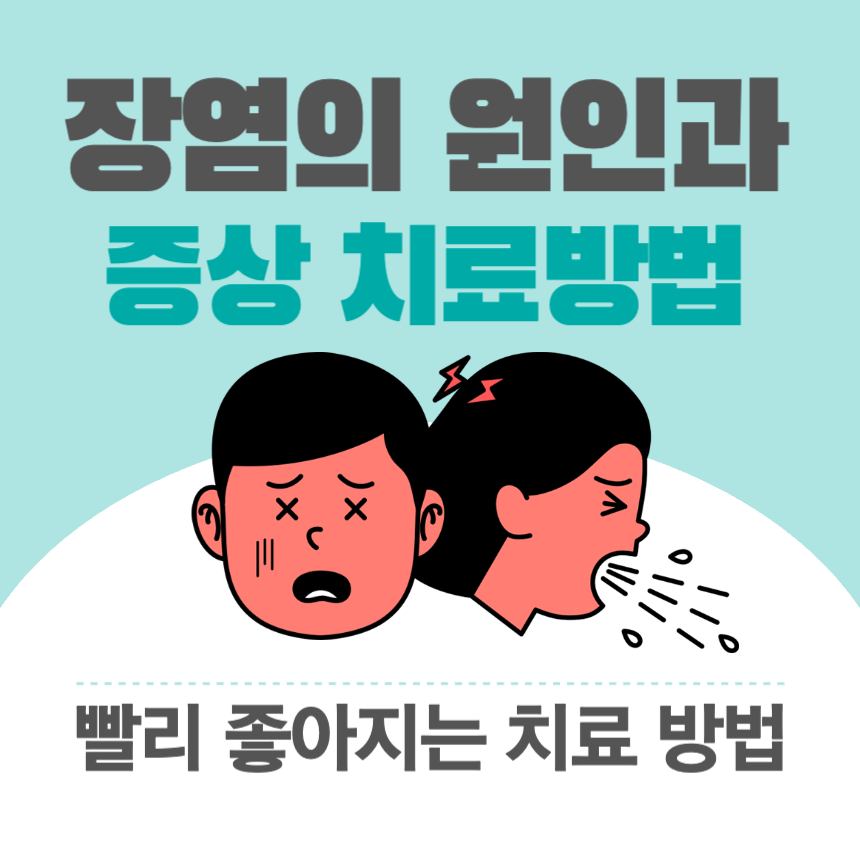My stomach was rumbling and in excruciating pain all day. Even an hour late for a meal would make me feel dizzy, and I wouldn't want to eat anything. Even the slightest hint of food would cause stomach pain. It was enteritis. What the heck is enteritis?
The day I got enteritis
I was craving sundae (blood sausage), so I bought some at the market and ate it. But then my stomach started hurting and I couldn't digest it, so I kept burping. I ate a lot of it, so I didn't want to waste it, and it was clear that I was choking. But it didn't end there.
After that I had diarrhea and abdominal pain for about three or four days. That's what enteritis is these days. What the heck is this enteritis? I decided to find out.
What is enteritis? The exact cause of enteritis.
Enteritis can be broadly divided into infectious and non-infectious types. Symptoms and treatment options can vary depending on the cause, so accurately identifying the cause is crucial.
The main cause of infectious enteritis
- bacterial enteritis : The main causes are Salmonella, E. coli, Shigella, and Vibrio.
- viral enteritis : Norovirus and rotavirus are the representative causative viruses.
- Enteritis caused by protozoa : It is caused by infection with protozoa such as amoeba.
- These pathogens mainly enter our bodies through contaminated food or water and cause gastroenteritis.
Causes of noninfectious enteritis
- food poisoning : It can occur if you eat spoiled food or have poor personal hygiene.
- Stress and drugs : Excessive stress or taking certain medications can cause enteritis.
- food allergies : It is caused by an allergic reaction to a specific food or by eating irritating food.
Key Symptoms of Enteritis (If You Have These, Beware!)
If you have enteritis, you may experience the following symptoms:
- diarrhea : It is characterized by completely watery diarrhea or mucus-like stools.
- colic : You feel a dull or sharp pain around your belly button or overall.
- Vomiting and nausea : You may experience difficulty eating to the point where you are unable to eat.
- having fever : In the case of infectious enteritis, it is often accompanied by fever. (In my son's case, This time, my fever rose to 40 degrees Celsius with enteritis.)
In severe cases, dehydration and electrolyte imbalance can occur, so caution is required. Children and the elderly are particularly vulnerable to dehydration, so prompt action is crucial.
How to Treat Enteritis (Effective Management Methods)
Most cases of enteritis are treatable with proper management and treatment. The following are helpful methods for treating enteritis.
Basic treatment for enteritis
- Drink enough water : You should drink water or electrolyte drinks frequently to prevent dehydration.
- Some people claim that you can just drink electrolyte drinks like Pocari Weight, but they contain many other ingredients, so they are out of the question!
- You can buy and drink ring tea or make it yourself by mixing 6 spoons of sugar and 1 teaspoon of salt in 1 liter of water.
Treatment for severe enteritis
- sap supply : If vomiting is severe or dehydration is severe, intravenous fluid administration is recommended.
- antibiotic treatment : In the case of bacterial enteritis among infectious enteritis, antibiotic treatment may be required.
Diet to help with enteritis
- Early diet : At first, it is recommended to eat white porridge or rice water, and gradually switch to soft foods.
- Foods that are easy to digest: Eggs, tofu, white fish, etc. are good for digestion.
Foods to Avoid When You Have Enteritis
- dairy products : Milk, cheese, ice cream, etc. can be difficult to digest.
- stodge : Fatty foods such as pork belly, fried foods, and ramen irritate the intestines.
- Gas-causing fruits : Gas-producing fruits such as watermelon, cantaloupe, and grapes can worsen symptoms.
- spicy foods : Spicy foods, alcohol, and other irritating foods can worsen intestinal inflammation.
Enteritis: When should I see a doctor?
Most cases of enteritis can be treated at home with proper care and rest. However, in the following cases, you should definitely seek medical attention.
- If you have severe dehydration symptoms
- If a high fever of 38 degrees or higher persists
- If you have bloody stool
- If severe abdominal pain persists
- If symptoms persist for more than 3 days
While most cases of enteritis improve with proper management and treatment, it's important to seek professional medical attention if symptoms are severe or persistent. The best way to prevent enteritis is to maintain personal hygiene and pay close attention to your diet.
I've heard that there are a lot of cases of gastroenteritis recently due to eating raw oysters. As the weather is already getting warmer, we recommend that you avoid eating raw oysters and eat them cooked. If you have a sensitive stomach, we recommend that you eat them cooked.I'll give it to you.
In closing
Recently, my son and I both contracted enteritis and were seriously ill for about four days. My son's fever reached over 40 degrees Celsius, reaching a critical level.
I was so shocked at the time that I'm still careful about what I eat. These days, gastroenteritis is prevalent, and once you get it, it can last quite a while. With the weather suddenly getting warmer, food is more prone to spoilage, so I recommend taking good care of your health.

